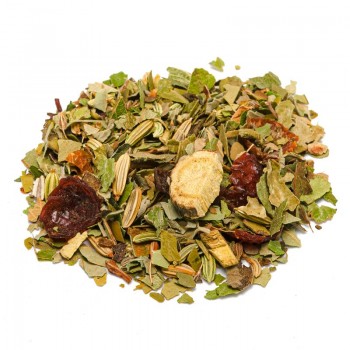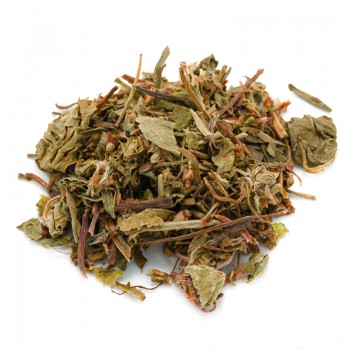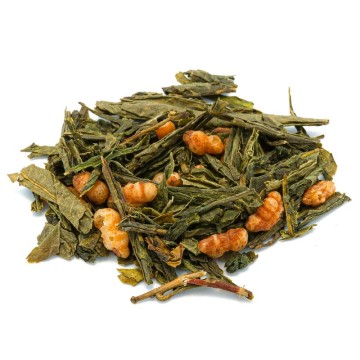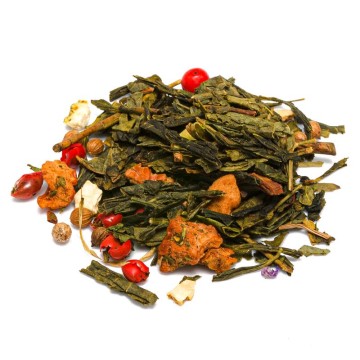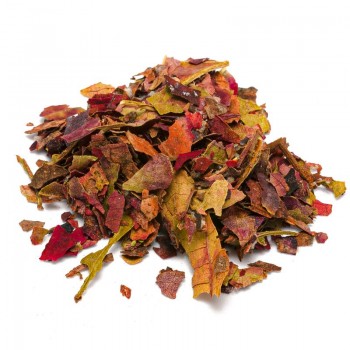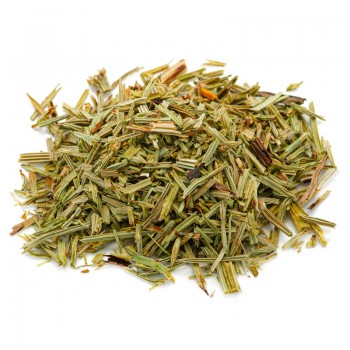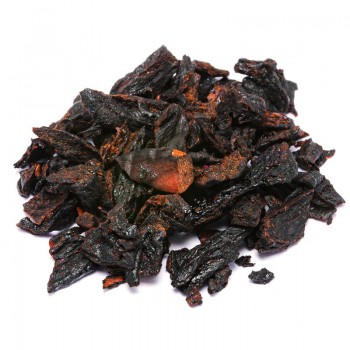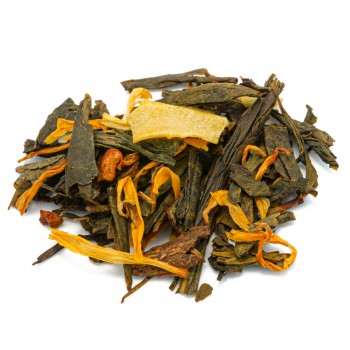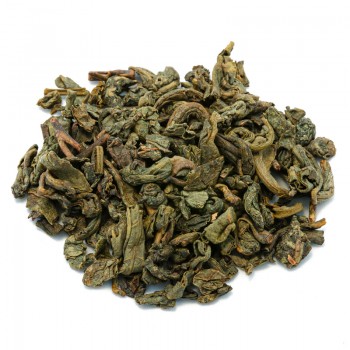The combination of ingredients in the Fucus-based herbal tea mix is wide. The taste is divided into many sweet, herbaceous, balsamic nuances and with slightly bitter hints of flavor. The strong base of the fucus, which evokes the salty marine flavor, is balanced with the sweet and velvety notes of licorice and fennel. The refreshing and balsamic nuances of other ingredients, such as mint and juniper, blend with the vegetal flavor of plants such as sage, horsetail and birch; up to the bitter flavors of cinchona and red vine.
The complex flavor is perfect for those who appreciate herbal infusions, naturally intense and with a persistent finish.
Plant and flowers
The slimming herbal mix that we offer contains different types of plants and botanical groups - since they are medicinal herbs from different places.
Fucus is a very common alga in cold waters, along the coasts. It belongs to the Phaeophyta family with a dark color, fucoxanthin, which preserves chlorophyll. Achillea Millefolium commonly known as yarrow, is a flowering plant of the Asteraceae family. It is native to the temperate regions of Asia, Europe and North America. Sweet Orange is Citrus aurantium native to Asia, and then spread to India. Appearance. Depending on the variety, oranges are yellow or reddish. Its size also varies considerably. Garden Asparagus, with the scientific name Asparagus officinalis, is a perennial flowering plant of the Asparagus genus. In the past it was classified in the lily family, like the related species Allium - onions and garlic.
Birch is part of the Betulaceae family. It is a tree up to 30 meters tall, or a shrub of about 5 m - famous is the white bark, detachable in large sheets. China, or Cinchona, is part of the plants of the Rubiaceae family, widespread in the Andes. The species known as cinchona, are known for the properties of the alkaloids present in the bark. Horsetail is the common name of the Equisetum plant, the only genus of the Equisetaceae, a family of plants that reproduce by spores rather than seeds. Fallax, Rhamnus alpinus L. ssp Fallax, is a small shrub tree that can grow up to 5 meters in height. It is found mainly in Italy and Switzerland, central France and Spain. It is collected for local use as a medicine.
Ash is Fraxinus excelsior L. belonging to the Oleaceae family; a plant native to temperate zones, with the ability to survive in difficult environmental conditions. Fennel or Foeniculum vulgare, is a resistant flowering plant, of the carrot family. It is native to the Mediterranean coasts, but has spread to many parts of the world; grows well in arid lands near the sea and on river banks.
Juniper or Juniperus Communis is the evergreen conifer that provides the main ingredient for the famous gin, and for health treatments. It grows with different varieties in cold areas of the northern hemisphere.
Licorice is Glycyrrhiza glabra, a plant that produces small flowers, from purple to light blue. It has long taproots, reaching over a meter, which give the characteristic flavor that we know as licorice.
Mint or Mentha is a perennial plant, of the Lamiaceae family. There are 13 to 24 species, and many hybrids and varieties are known, used mainly for food. Salvia officinalis is a plant of the Lamiaceae family, in the Mentheae subfamily in the Nepetoideae subfamily. Known for thousands of years for its healing properties. The Red Vine, Vitis vinifera is a very common plant in the Mediterranean, of the Vitaceae family. It is one of the varieties of the vine that gives grapes, for the production of wine.
How to use the mixture in herbal tea
For a good infusion, it is advisable to use for a cup (250 ml), about 4 grams of the mixture, with water at 100 °C.
Leave to infuse for about 8-10 minutes, before drinking the herbal tea.
Herbal mixture: side effects and contraindications
It is necessary to avoid excessive consumption of this herbal tea, to avoid unwanted effects. Herbal teas are not a substitute for a varied and balanced diet. Avoid consumption in case of individual sensitivity or allergy to one or more ingredients. In case of pregnancy, breastfeeding, thyroid disorders, it is advisable to consult a doctor before use.



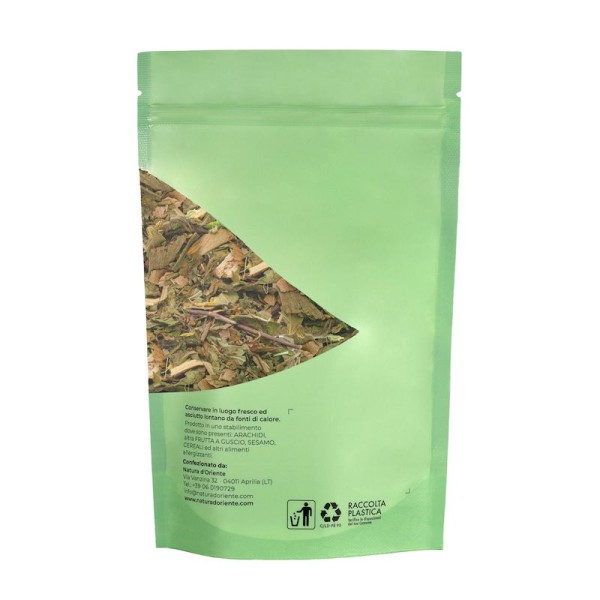







 No reward points for this product.
No reward points for this product.
